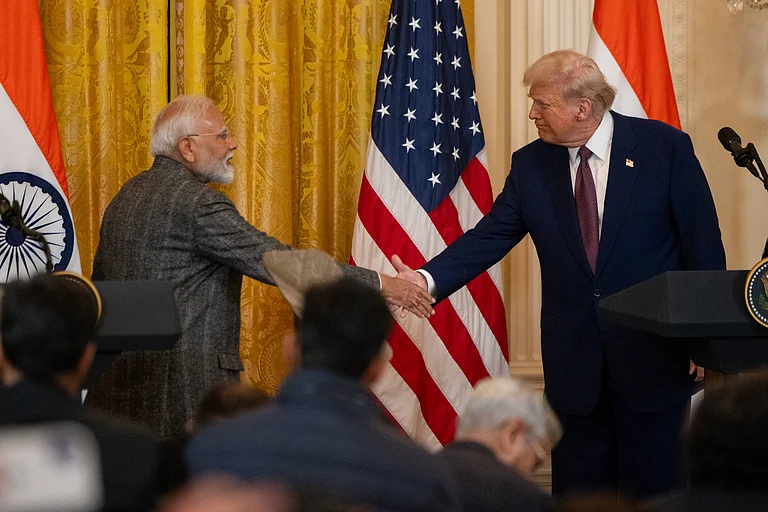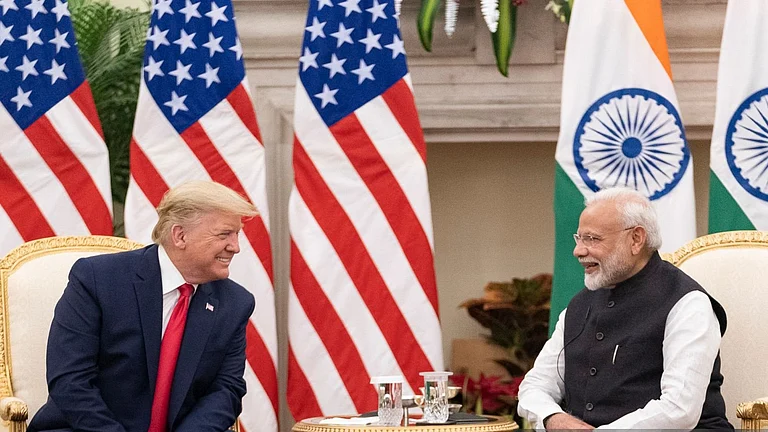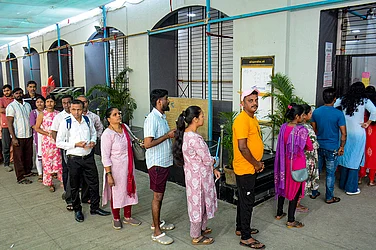
Washington levies additional 25% tariff citing New Delhi’s Russian crude and defence purchases.
Treasury Secretary Bessent says “we still don’t have a deal,” calling India’s approach to talks “performative.”
Reports suggest PM Modi declined four calls from President Trump amid dispute; New Delhi vows to protect farmers’ interests.
US Treasury Secretary Scott Bessent struck a conciliatory note on Wednesday as trade tensions between the United States and India grew after Washington imposed an additional 25 per cent tariff in response to New Delhi's purchase of Russian defence equipment and oil. He expressed confidence that the two countries would find common ground.
He clarified the current state of the trade agreement between the two nations by stating that "we still don't have a deal" and that India's position during the negotiations had been "performative." While it was anticipated that the trade agreement would be finalised by May or June, India has approached the agreement cautiously.
"The Indians came in early after Liberation Day to start negotiating on tariffs, and we still don't have a deal. I thought we would have a deal by May or June. I thought India could be our earlier deals, and they tapped us along in terms of negotiations. There's also that aspect of Russian crude purchases, which they have been profiteering on," Bessent said.
Additionally, Bessent clarified that there is a "very good rapport at the top level" between US President Donald Trump and Prime Minister Narendra Modi. "This is a complex relationship," he remarked. At the highest level, President Trump and Prime Minister Modi get along well, but it goes beyond Russian energy.
Bessent reaffirmed Trump's position on bilateral trade, stating that the US has a significant trade imbalance with India and that the "deficit" country benefits from a "schism" in economic ties, while the "surplus" country should worry."
"The US is the deficit country. When there is a schism in trade relations, the deficit country is at an advantage. It's the surplus country that should worry. So, the Indians are selling to us. They have very high tariffs and we have a very large deficit with them," the Treasury Secretary said.
While answering whether he is worried about India setting the trade in rupee, he pointed out that the Indian rupee is at an all-time low against the US dollar and remarked, "A lot of things I worry about. The rupee becoming the reserve currency isn't one of them."
PM Modi has vowed to "never compromise" the interests of the nation's farmers, and New Delhi has stated that it is ready to resist US pressure.
According to the German newspaper Frankfurter Allgemeine Zeitung (FAZ), which cited sources, PM Modi declined to answer four calls from US President Donald Trump in recent weeks amid the tariff spat. The "depth of his [Modi's] anger, but also his caution" is what the study says caused this.


























